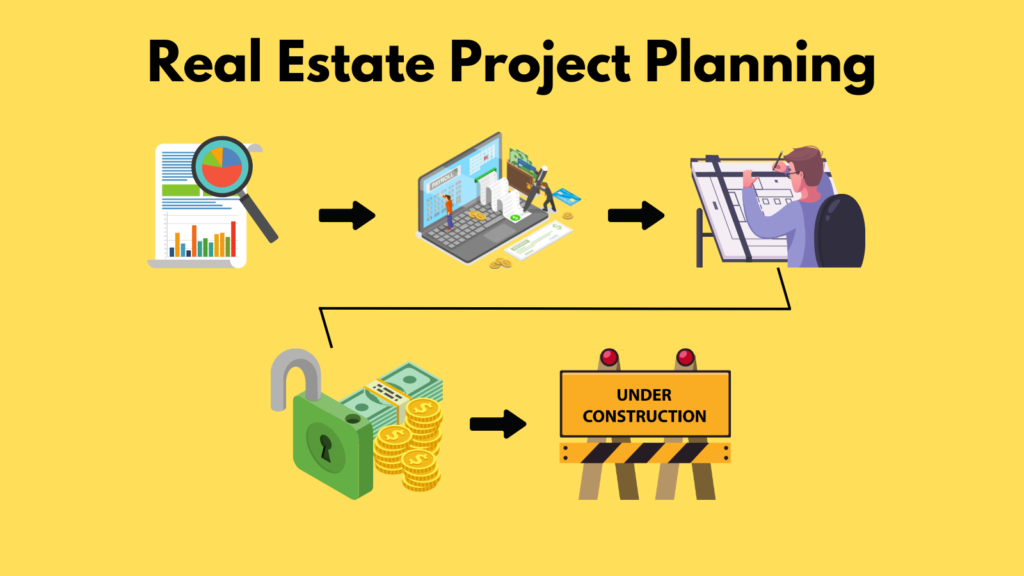Real estate project planning is a crucial aspect of the development process that involves careful organization and strategic foresight.
With the right approach, developers can not only streamline operations but also maximize value and minimize risks.
In a landscape where market dynamics continuously evolve, mastering real estate project planning enables you to navigate complexities effectively, ensuring your projects are not just successful but also sustainable.
In this article, we will explore the fundamental components of real estate project planning, delve into its importance, outline key phases, highlight essential tools, address common challenges, and share best practices for achieving your real estate goals.

Key Takeaways
- Effective real estate project planning is essential for success in the industry.
- Strategic planning helps identify goals and allocate resources efficiently.
- Understanding key phases of project planning ensures systematic progress and accountability.
- Utilizing the right tools and technologies can significantly enhance project management and communication.
- Adopting best practices can help overcome common challenges and improve overall project outcomes.
Introduction to Real Estate Project Planning
Real estate project planning is a critical process that lays the groundwork for successful property development.
From determining the feasibility of a new build to outlining the financial and construction timelines, effective planning is essential in navigating the complexities of the real estate market.
Whether you’re a seasoned developer or a first-time investor, understanding the fundamentals of real estate project planning can significantly enhance your project’s success rate.
This process involves several key steps: conducting market research, analyzing zoning laws, engaging with stakeholders, and establishing a comprehensive budget.
By meticulously strategizing each aspect of the project, developers can mitigate risks and capitalize on opportunities within the ever-evolving real estate landscape.
Understanding the Importance of Strategic Planning
In the competitive realm of real estate, understanding the importance of strategic planning is essential for any successful project.
Real estate project planning revolves around developing a comprehensive framework that guides all phases of a project, from conception to execution.
This includes defining clear objectives, conducting market analysis, and identifying potential risks that could impact the project’s success.
With meticulous planning, developers can ensure resource allocation aligns with project timelines while also maximizing financial returns.
Moreover, strategic planning facilitates informed decision-making by providing a roadmap that anticipates challenges and incorporates flexibility to adapt to changing market conditions.
Ultimately, when real estate project planning is executed proficiently, it not only enhances the value of the property but also fosters sustainable growth in the ever-evolving real estate market.
‘Plans are nothing; planning is everything.’ – Dwight D. Eisenhower

Key Phases of Real Estate Project Planning
Real estate project planning is a complex process that involves several key phases, each critical for the successful execution of a development.
The first phase is initial research and feasibility analysis, where investors assess market conditions, zoning laws, and potential return on investment.
Following this, the conceptual design phase begins, during which architects and planners collaborate to create a vision for the project, balancing aesthetic and functional elements.
Once the concept is validated, the detailed planning phase takes over, involving the creation of architectural drawings and obtaining necessary permits and approvals from local authorities.
With these approvals secured, the project enters the financing phase, where developers explore funding options to support construction.
Finally, the construction and implementation phase commences, requiring effective project management to ensure timelines and budgets are adhered to.
By understanding these key phases of real estate project planning, developers can navigate challenges and capitalize on opportunities, leading to successful project outcomes.
Tools and Technologies for Effective Planning
Effective real estate project planning is essential for the success of any development initiative, and leveraging the right tools and technologies can significantly enhance this process.
Project management software such as Trello or Asana enables teams to organize tasks, set deadlines, and track progress collaboratively.
Additionally, Geographic Information Systems (GIS) provide invaluable insights into land use patterns and environmental considerations, allowing developers to make informed decisions regarding site selection.
Virtual reality (VR) and 3D modeling technologies have also transformed the planning stage, enabling stakeholders to visualize the project and its potential impact before it even breaks ground.
With these advanced tools at your disposal, you can streamline communication, enhance efficiency, and ultimately ensure your real estate project planning is executed smoothly, paving the way for a successful development.

Common Challenges in Real Estate Project Planning
In the realm of real estate project planning, various common challenges can significantly impact the success of a development.
One major hurdle is navigating the complex regulatory landscape, which often varies by location and can involve numerous permits and approvals that are time-consuming to obtain.
Additionally, accurately forecasting costs and managing budgets poses another significant challenge; fluctuations in material prices and labor shortages can derail even the most meticulously crafted plans.
Effective communication among stakeholders is crucial, as misalignment or lack of clarity can lead to project delays and misunderstandings.
Furthermore, adapting to unexpected changes, such as shifts in market demand or economic fluctuations, is essential for maintaining project viability.
By recognizing these challenges in real estate project planning, developers can better devise strategies to overcome them and enhance the likelihood of successful project outcomes.
Best Practices for Successful Real Estate Projects
When embarking on real estate project planning, especially in a vibrant market like Costa Rica, it’s crucial to adhere to best practices that can ensure the success and sustainability of your investment.
Start by conducting thorough market research to understand local trends, property values, and buyer interests.
Collaborating with experienced real estate agents familiar with the Costa Rican landscape can provide invaluable insights.
Furthermore, it’s essential to define a clear project scope and budget, allowing for contingencies throughout the planning phase.
Engaging legal and financial advisors early on will help navigate the complexities of property laws and financing options unique to Costa Rica.
Additionally, prioritizing sustainable and eco-friendly practices in your project can resonate well with potential buyers who value environmental responsibility.
By implementing these best practices into your real estate project planning, you position yourself for a successful and profitable venture in Costa Rica’s dynamic real estate market.
Frequently Asked Questions
What is real estate project planning?
Real estate project planning entails organizing and structuring the various phases of a real estate development project, from initial research and feasibility studies to final execution and delivery.
It involves strategic planning to ensure that the project meets its objectives and stays on budget and schedule.
Why is strategic planning important in real estate projects?
Strategic planning is crucial in real estate projects as it helps identify goals, allocate resources efficiently, anticipate challenges, and ensure all stakeholders are aligned.
Proper strategic planning can significantly enhance the likelihood of a project’s success.
What are the key phases of real estate project planning?
The key phases of real estate project planning typically include project initiation, feasibility analysis, design and development planning, construction planning, and project completion.
Each phase requires careful attention to detail to ensure smooth transitions between stages.
What tools and technologies can assist in real estate project planning?
Tools and technologies that can aid real estate project planning include project management software (like Trello or Asana), financial analysis tools (like Excel or specialized software), GIS mapping tools, and construction management software.
These tools help streamline processes, enhance communication, and improve overall project coordination.
What are some common challenges faced in real estate project planning?
Common challenges in real estate project planning include budget overruns, regulatory compliance issues, unexpected environmental concerns, delays in approvals, and managing stakeholder expectations.
Anticipating these challenges and developing mitigation strategies is essential for successful project completion.





